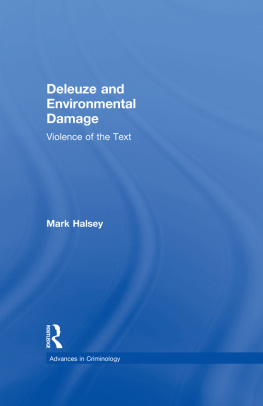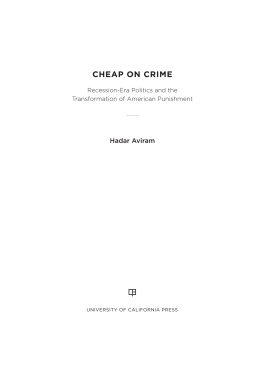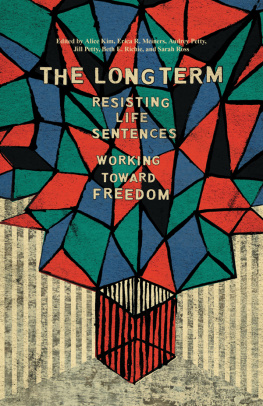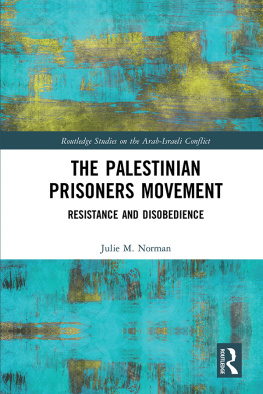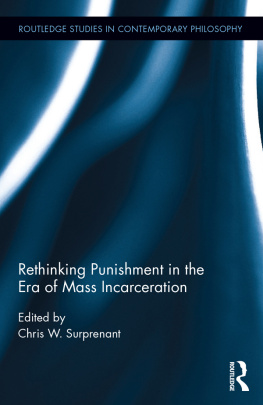
Generations Through Prison
Around one in five prisoners report the previous or current incarceration of a parent. Many such prisoners attest to the long-term negative effects of parental incarceration on ones own sense of self and on the range and quality of opportunities for building a conventional life. And yet, the problem of intergenerational incarceration has received only passing attention from academics, and virtually little if any consideration from policy makers and correctional officials.
This book the first of its kind offers an in-depth examination of the causes, experiences and consequences of intergenerational incarceration. It draws extensively from surveys and interviews with second-, third-, fourth- and fifth-generation prisoners to explicate the personal, familial and socio-economic contexts typically associated with incarceration across generations. The book examines 1) the emergence of the prison as a dominant if not life-defining institution for some families, 2) the link between intergenerational trauma, crime and intergenerational incarceration, 3) the role of police, courts, and corrections in amplifying or ameliorating such problems, and 4) the possible means for preventing intergenerational incarceration. This is undeniably a book that bears witness to many tragic and traumatic stories. But it is also a work premised on the idea that knowing these stories knowing that they often resist alignment with pre-conceived ideas about who prisoners are or who they might become is part and parcel of advancing critical debate and, more importantly, of creating real change.
Written in a clear and direct style, this book will appeal to students and scholars in criminology, sociology, cultural studies, social theory and those interested in learning about more about families in prison.
Mark Halsey is a Professor of Criminology, Centre for Crime Policy and Research, Flinders University, Australia. His recent books include Tackling Correctional Corruption: An Integrity Promoting Approach (co-authors Andrew Goldsmith and Andrew Groves) and Young Offenders: Crime, Prison and Struggles for Desistance (co-author Simone Deegan).
Melissa de Vel-Palumbo is a Lecturer in Criminology at the Centre for Crime Policy and Research, Flinders University. Her work focuses on offender needs, rehabilitation, and community responses to crime. She has also trained as a forensic psychologist.
Routledge Studies in Crime, Justice and the Family
Edited by Rachel Condry, The University of Oxford, UK
This series is the first series of its kind for criminology. It offers a space to capture work on a range of topics that share the common theme of the relationship between crime, justice and the family, and aims to interrogate common-sense understandings of this relationship to explore just who is affected by crime and how they are affected, whether as victims of crime within the family, as secondary victims, or as parents, children, spouses, or other kin of offenders.
Families, Imprisonment and Legitimacy
The Cost of Custodial Penalties
Cara Jardine
Generations Through Prison
Experiences of Intergenerational Incarceration
Mark Halsey and Melissa de Vel-Palumbo
Generations Through Prison
Experiences of Intergenerational Incarceration
Mark Halsey and Melissa de Vel-Palumbo
First published 2020
by Routledge
2 Park Square, Milton Park, Abingdon, Oxon OX14 4RN
and by Routledge
52 Vanderbilt Avenue, New York, NY 10017
Routledge is an imprint of the Taylor & Francis Group, an informa business
2020 Mark Halsey and Melissa de Vel-Palumbo
The right of Mark Halsey and Melissa de Vel-Palumbo to be identified as authors of this work has been asserted by them in accordance with sections 77 and 78 of the Copyright, Designs and Patents Act 1988.
All rights reserved. No part of this book may be reprinted or reproduced or utilised in any form or by any electronic, mechanical, or other means, now known or hereafter invented, including photocopying and recording, or in any information storage or retrieval system, without permission in writing from the publishers.
Trademark notice: Product or corporate names may be trademarks or registered trademarks, and are used only for identification and explanation without intent to infringe.
British Library Cataloguing-in-Publication Data
A catalogue record for this book is available from the British Library
Library of Congress Cataloging-in-Publication Data
Names: Halsey, Mark, author. | De Vel-Palumbo, Melissa, author.
Title: Generations through prison: experiences of intergenerational incarceration / Mark Halsey & Melissa de Vel-Palumbo.
Description: Abingdon, Oxon; New York, NY: Routledge, 2020. | Series: Routledge studies in crime, justice and the family | Includes bibliographical references and index. | Identifiers: LCCN 2019048414 (print) | LCCN 2019048415 (ebook) | ISBN 9780815375166 (hardback) | ISBN 9781351240574 (ebook)
Subjects: LCSH: PrisonersFamily relationships. | Prisoners families. | Children of prisoners. | CrimeSociological aspects.
Classification: LCC HV8885 .H35 2020 (print) | LCC HV8885 (ebook) | DDC 365/.6dc23
LC record available at https://lccn.loc.gov/2019048414
LC ebook record available at https://lccn.loc.gov/2019048415
ISBN: 978-0-8153-7516-6 (hbk)
ISBN: 978-1-351-24057-4 (ebk)
Typeset in Times New Roman
by Wearset Ltd, Boldon, Tyne and Wear
Contents
This research was funded by an Australian Research Council Future Fellowship (FT120100284) and by the Office of the Deputy Vice Chancellor, Research, Flinders University. Sincere thanks is due to both these funding bodies.
The South Australian Department for Correctional Services (at the survey and interview stages) and the South Australian Department for Communities and Social Inclusion (at the survey stage), permitted access to incarcerated participants. The assistance provided by each prison manager was central to the data-collection stage as were the efforts of various prison volunteers.
Trevor Richardson provided regular updates on the location of survey participants and prospective interviewees.
Andrew Groves provided research assistance during the formative stages of the study.
At the heart of the research process, are the participants themselves. My sincere thanks to all of them. It is no small thing to place ones trust in a researcher and to reveal something of their life in the survey and/or at interview. I hope this book serves their stories well.
Along the way, I benefited from a period as a Visiting Scholar at UC Berkeley, California which helped frame some of the initial publications from this research. During the final stages of writing this book, I also benefited from a short but productive period of time based in Oxford, UK (with access to the Centre for Criminology, Oxford University).
Many people have enriched my thinking around the topic of intergenerational incarceration and/or have provided an environment within which to debrief about various issues. Im particularly grateful to Rachel Condry (and those within the Prisoners Families Network more generally), Stephen Farrall, Fergus McNeill, Jody Lewen, Shadd Maruna, Jonathan Simon and Andrew Goldsmith for their encouragement and insights.


